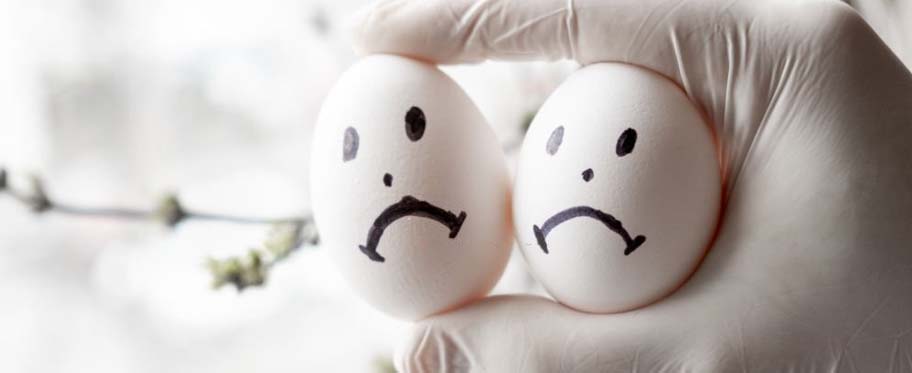
Can Testicular Trauma Cause Infertility?
Testicular trauma refers to damage to the testicles, which hang outside of your body and are vulnerable to being hurt. Your scrotum is the tissue that covers your testicles, but there’s no other protection from muscles or bones.
Much of the time, testicles can absorb the shock that comes from an injury without serious damage. At other times, you may need to seek medical attention for treatment. Trauma can hurt your scrotum and your testicles, even tearing the protective tissue or causing the testicles to split open.
Your testicles make sperm and hormones. Testicular trauma can harm those functions and interfere with blood flow.
Who is affected by testicular trauma?
Testicular trauma can affect anyone with one or two testicles. They are outside the body and have little protection.
What are the types of testicular trauma?
There are several types of testicular trauma, including:
- Contusion: This is a bruise or a hematoma, a collection of blood beneath tissues.
- Testicular torsion: This means that the spermatic cord inside the testicle becomes twisted. Because the cord also has blood vessels, it must be untwisted before lack of blood flow leads to tissue death.
- Rupture: This type of event, also called a fracture, causes the testicle covering to be torn. Without the tough covering, there’s no protection and the testicle contents can spill out.
- Degloving: This happens when some type of accident removes the skin covering the testicles.
- Dislocation: This can happen when something forces your testicle out of position.
- Detaching: In some cases, the testicle has been detached.
After one of these events, you can have infections or inflammation. Epididymitis, swelling of the tube at the back of the scrotum, can turn into an infection.
What are the symptoms of testicular trauma?
Symptoms of testicular trauma may include:
- Severe pain in your scrotum (the sac that holds your testicles).
- Bruising in your scrotum.
- Swelling in your scrotum.
- Pain and discomfort in your lower abdomen.
- Nausea and/or vomiting.
- Fever after injury.
- Blood in your pee (hematuria).
- Pain while peeing (dysuria).
TESTICULAR TRAUMA
Under normal conditions, the testicles make sperm and male hormones. A tough fibrous cover protects each testicle. After the sperm cells are created, they travel to the epididymis, which has a thin, fragile coating. The epididymis is a gland located along the back of the testicle. There, sperm-making ducts from the testicle join and form a single coiled tube. The sperm spend a short time here to mature before they mix with semen and leave through a tube called the vas deferens.
If the testicle or scrotum is hurt by some force, any part of the contents can be damaged. Blood can leak from a wound to the testicles cover, creating a pool of blood. This condition can stretch the scrotum beyond normal and lead to infection.
TREATMENT
If necessary, your doctor will use an imaging test, such as ultrasound, to see the structures in the scrotum. If there is an injury, surgery may be necessary to check the contents. A torn testicle can be repaired with stitches. Under certain circumstances, it may be necessary to leave a plastic tube in the scrotum for a short time for drainage.
While injury to a testicle can cause damage, if one is working normally, there should not be a problem with infertility. A normally functioning testicle can produce adequate amounts of sperm and testosterone.
If fertility is an issue, you can contact Chawla Nursing Home and schedule an appointment with one of our specialists. We offer various treatments for infertility to help you overcome the odds and build your family.
Schedule An Appointment
Get your Appointment Confirm with us Easily


